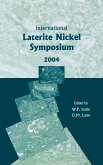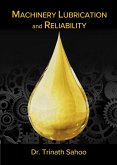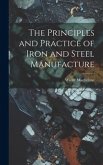The intense temperature fields caused by heat sources in welding frequently lead to distortions and residual stresses in the finished product. Welding distortion is a particular problem in fabricating thin plate structures such as ships. Based on pioneering research by the authors, Control of Welding Distortion in Thin-Plate Fabrication reviews distortion test results from trials and shows how outcomes can be modeled computationally. The book provides readers with an understanding of distortion influences and the means to develop distortion-reducing strategies.
The book is structured as an integrated treatment. It opens by reviewing the development of computational welding mechanics approaches to distortion. Following chapters describe the industrial context of stiffened plate fabrication and further chapters provide overviews of distortion mechanics and the modeling approach. A chapter on full-scale welding trials is followed by three chapters that develop modeling strategies through thermal process and thermo-mechanical simulations, based on finite-element analysis. Simplified models are a particular feature of these chapters. A final sequence of chapters explores the simulation of welding distortion in butt welding of thin plates and fillet welding of stiffened plate structures, and shows how these models can be used to optimize design and fabrication methods to control distortion.
Control of Welding Distortion in Thin-Plate Fabrication is a comprehensive resource for metal fabricators, engineering companies, welders and welding companies, and practicing engineers and academics with an interest in welding mechanics.
Hinweis: Dieser Artikel kann nur an eine deutsche Lieferadresse ausgeliefert werden.
The book is structured as an integrated treatment. It opens by reviewing the development of computational welding mechanics approaches to distortion. Following chapters describe the industrial context of stiffened plate fabrication and further chapters provide overviews of distortion mechanics and the modeling approach. A chapter on full-scale welding trials is followed by three chapters that develop modeling strategies through thermal process and thermo-mechanical simulations, based on finite-element analysis. Simplified models are a particular feature of these chapters. A final sequence of chapters explores the simulation of welding distortion in butt welding of thin plates and fillet welding of stiffened plate structures, and shows how these models can be used to optimize design and fabrication methods to control distortion.
Control of Welding Distortion in Thin-Plate Fabrication is a comprehensive resource for metal fabricators, engineering companies, welders and welding companies, and practicing engineers and academics with an interest in welding mechanics.
Hinweis: Dieser Artikel kann nur an eine deutsche Lieferadresse ausgeliefert werden.

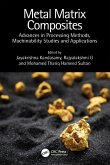
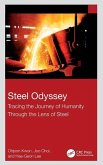
![Cobalt Alloys With Non-corrosive Properties [microform] Cobalt Alloys With Non-corrosive Properties [microform]](https://bilder.buecher.de/produkte/71/71613/71613301m.jpg)
